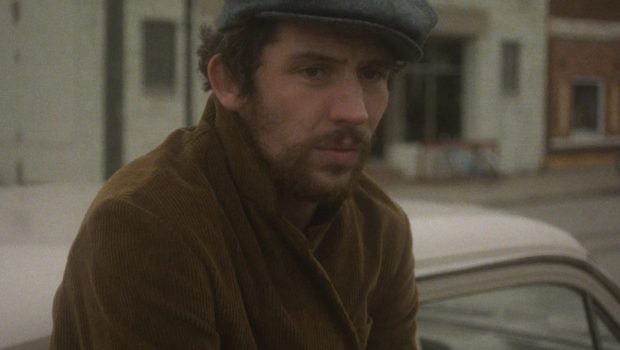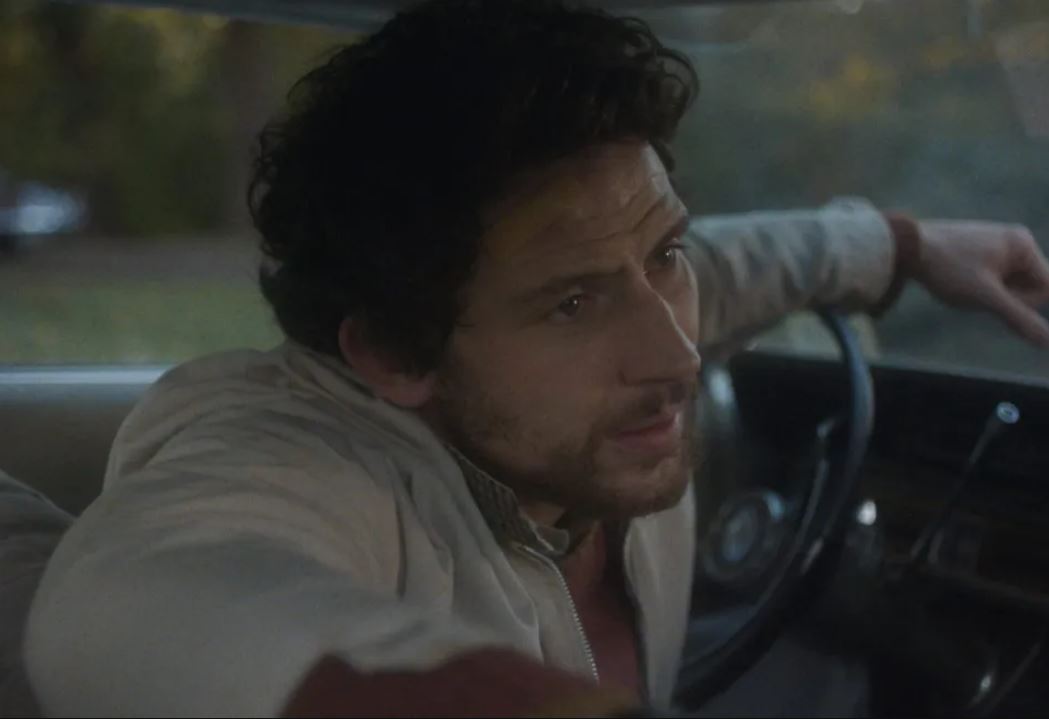The Mastermind – Film Review
Reviewed by Harris Dang on the 8th of June 2025
Sydney Film Festival presents a film by Kelly Reichardt
Written by Kelly Reichardt
Produced by Neil Kopp, Anish Savjani, and Vincent Savino
Starring Josh O’Connor, Alana Haim, Bill Camp, Hope Davis, John Magaro, Gaby Hoffmann, and Matthew Maher
Cinematography Christopher Blauvelt
Edited by Kelly Reichardt
Music by Rob Mazurek
Rating: TBA
Running Time: 110 minutes
Release Date: TBA
Set in 1970s Massachusetts, James Blaine Mooney (Josh O’Connor) is a loving family man with a doting wife Terri (Alana Haim) and two spirited sons, Carl and Tommy (Sterling and Jasper Thompson). They live a quiet life and happily spend time together by going to the museum. The family is unaware that James is planning a heist to steal paintings from the museum with two fellow robbers, Guy (Eli Gelb) and Larry (Cole Doman).
With intricate planning, James and co. proceed with the heist. The caper turns into an utter disaster, leading James to take evasive action. While hiding from the authorities and trying to recon with his fellow robbers, the audience discovers who James is and that his life is not as intricately outlined as his heist.
The Mastermind is the latest film from acclaimed filmmaker Kelly Reichardt. She is best known for her understated dramas, such as Wendy and Lucy (2008) and Certain Women (2016), which are about people in small communities. Her stories focus on characters looking for a better quality of life—a through-line that continues in The Mastermind. Her latest film is saddled with her biggest budget and is genre focused, drawing comparisons to her ecoterrorism drama Night Moves (2013).
The film has her filmmaking spirit in check while succinctly and smoothly working around the heist genre. Christopher Blauvelt’s cinematography utilises wide shots and long singular takes to capture the 1970s feel. Meanwhile, the vivid locations, geography, and production design by Anthony Gasparro captures the stillness of James’ life while evoking its period setting.
Rob Mazurek’s score is a standout. Energetic, melancholic, and shrewd all at once, Mazurek’s jazzy score captures the mania he faces while the world around him takes shape. The heist recalls classic heist films, including Le Cercle Rouge (1970) by Jean-Pierre Melville and Rififi (1955) by Jules Dassin, by staging set pieces with minimal dialogue. Unlike those films, Reichardt pulls the wool over our eyes and shows James and co. were clearly in over their heads. The jazzy score builds up the momentum and the physical comedy from Gelb and Doman provides many laughs. O’Connor successfully conveys cockeyed optimism over the heist’s supposed success.
The real mastery here is showing the audience how James’ life slowly unravels. Before the heist, we know he is unemployed, his parents (Bill Camp and Hope Davis) do not have the best hopes for him, and prior to his employment as a carpenter he was an art major. Peppered throughout the film are backdrops of political action, such as the anti-Vietnam War protests and the Women’s Liberation Movement.
Those instances are dramatised by colourful characters portrayed by John Magaro, Gaby Hoffmann, a scene-stealing Matthew Maher and others. The actors make the story’s devastation quietly understated. The film is also held together by Josh O’Connor’s wonderful performance as James. With an ungroomed façade that makes him look youthful but world-weary, a beaming smile belying charisma and vulnerability, and a hunched physicality that bears heavy burden, O’Connor fits Reichardt’s filmmaking sensibilities like a glove. His work plays with the audience’s allegiance and sympathy, allowing his balance of both dry comedy and contemplative drama to make the cruelly ironic ending soar.
Overall, The Mastermind is another winner from Kelly Reichardt and becomes one of her most entertaining and funniest works. Like the character James, underneath its façade it shows it could be her most devastating film.
Summary: The Mastermind is another winner from Kelly Reichardt and becomes one of her most entertaining and funniest works. Like the character James, underneath its façade it shows it could be her most devastating film.








